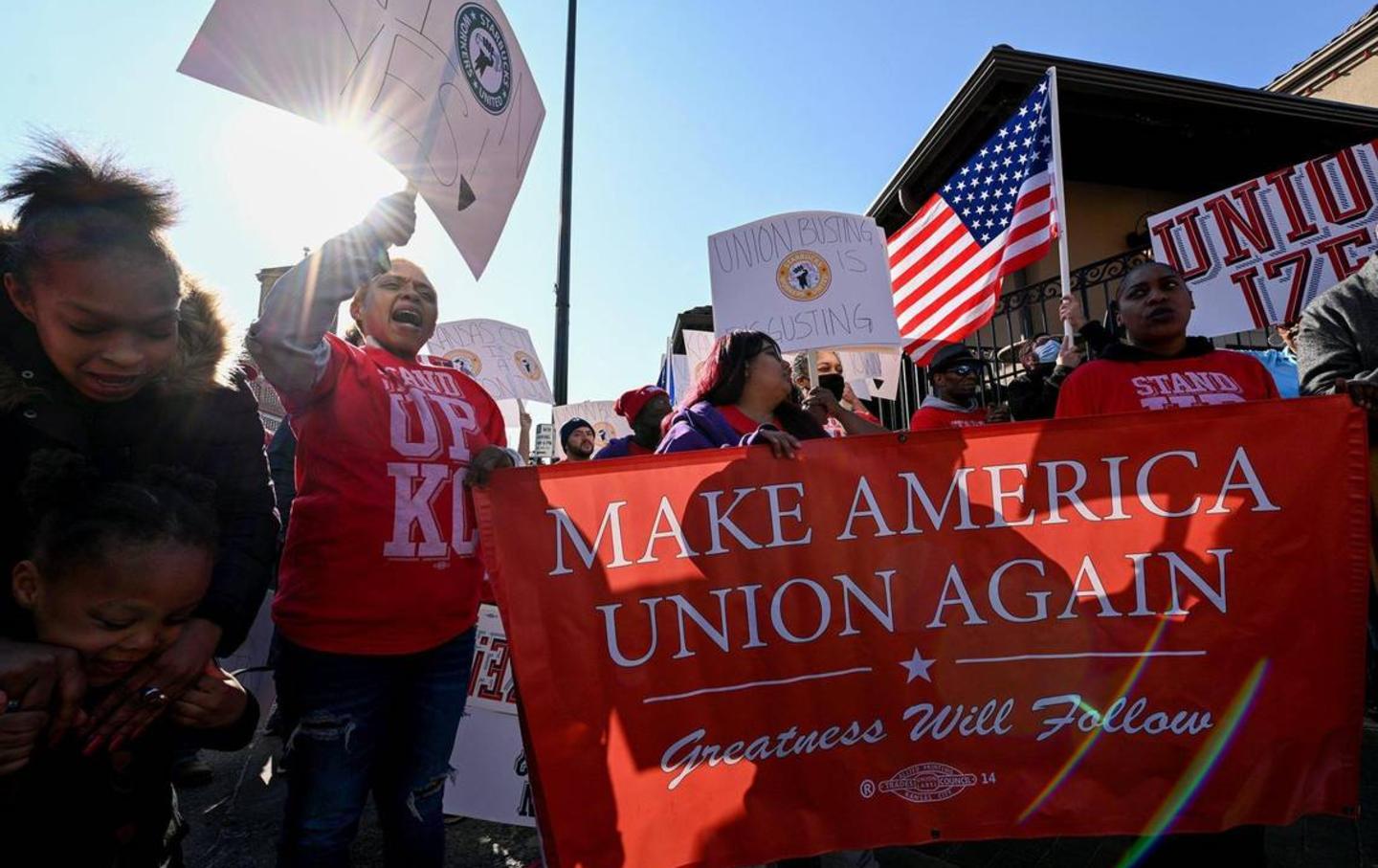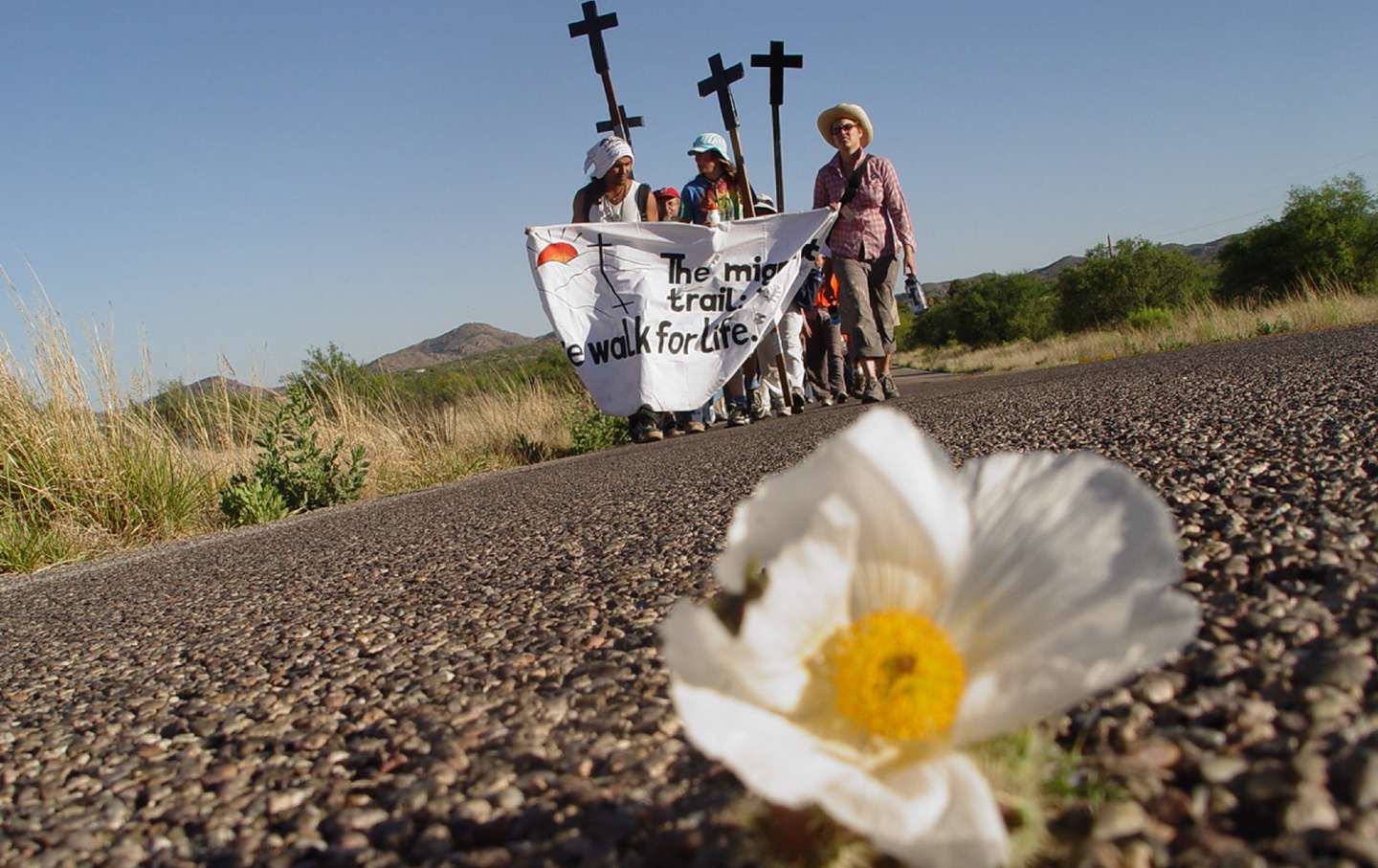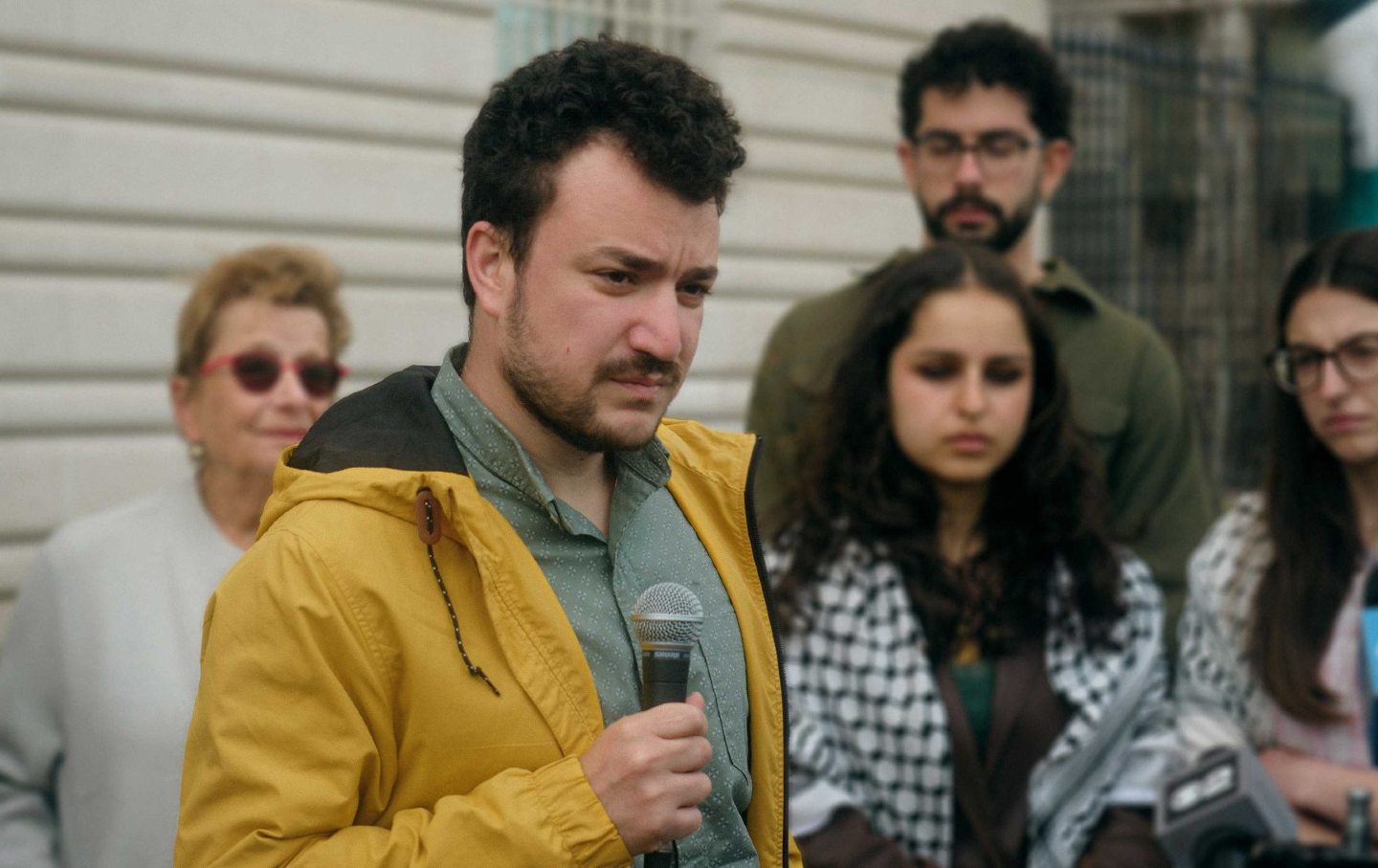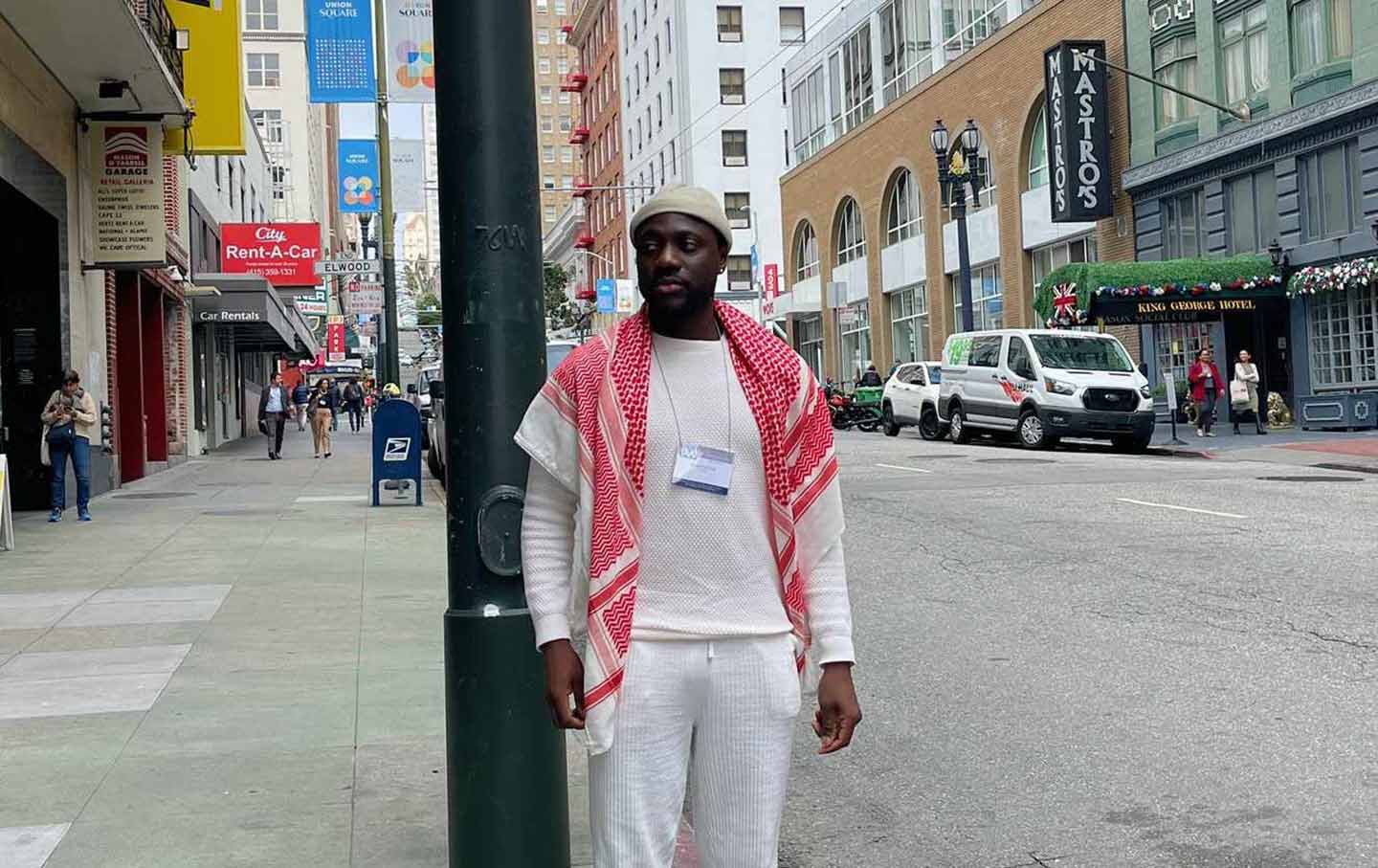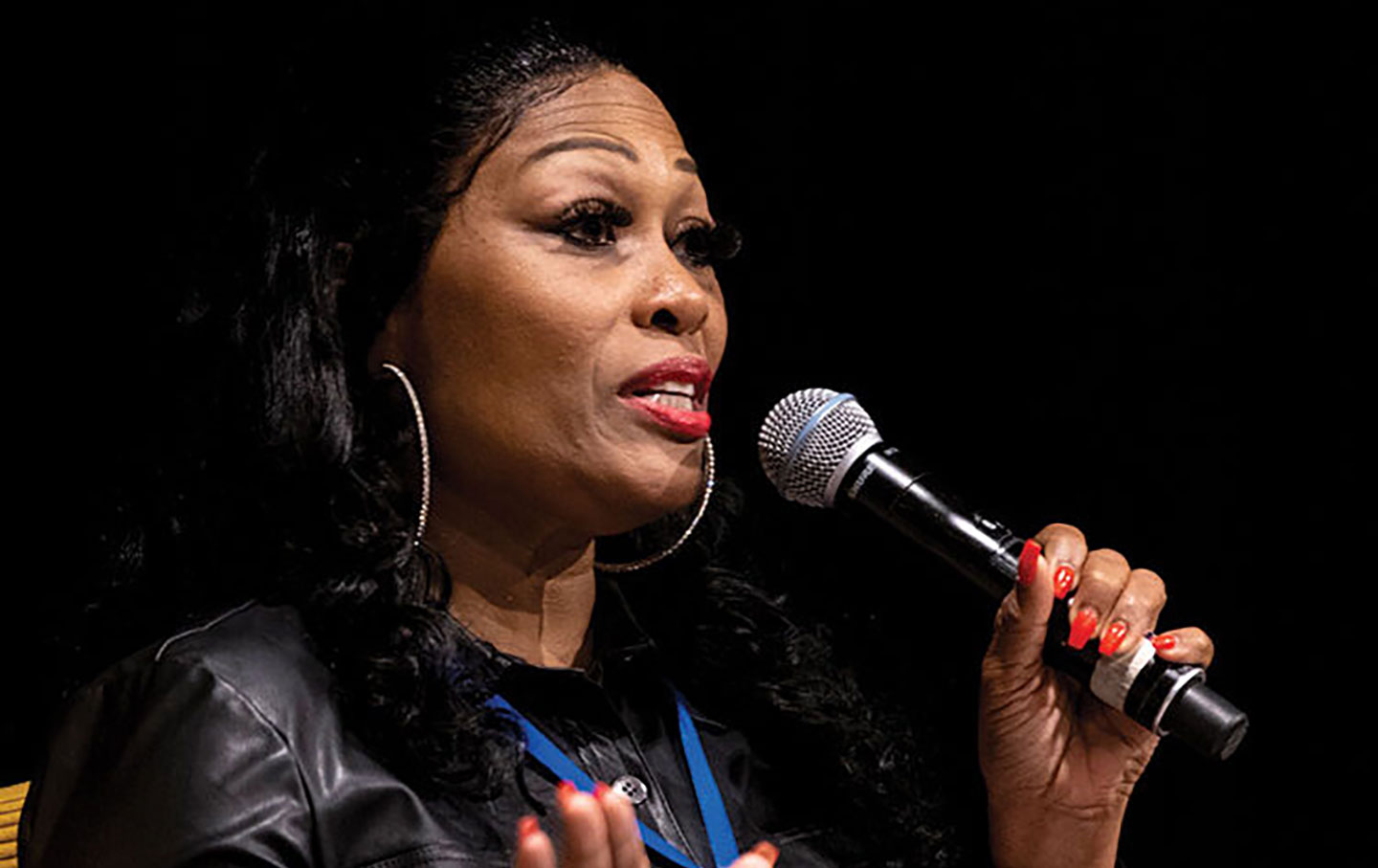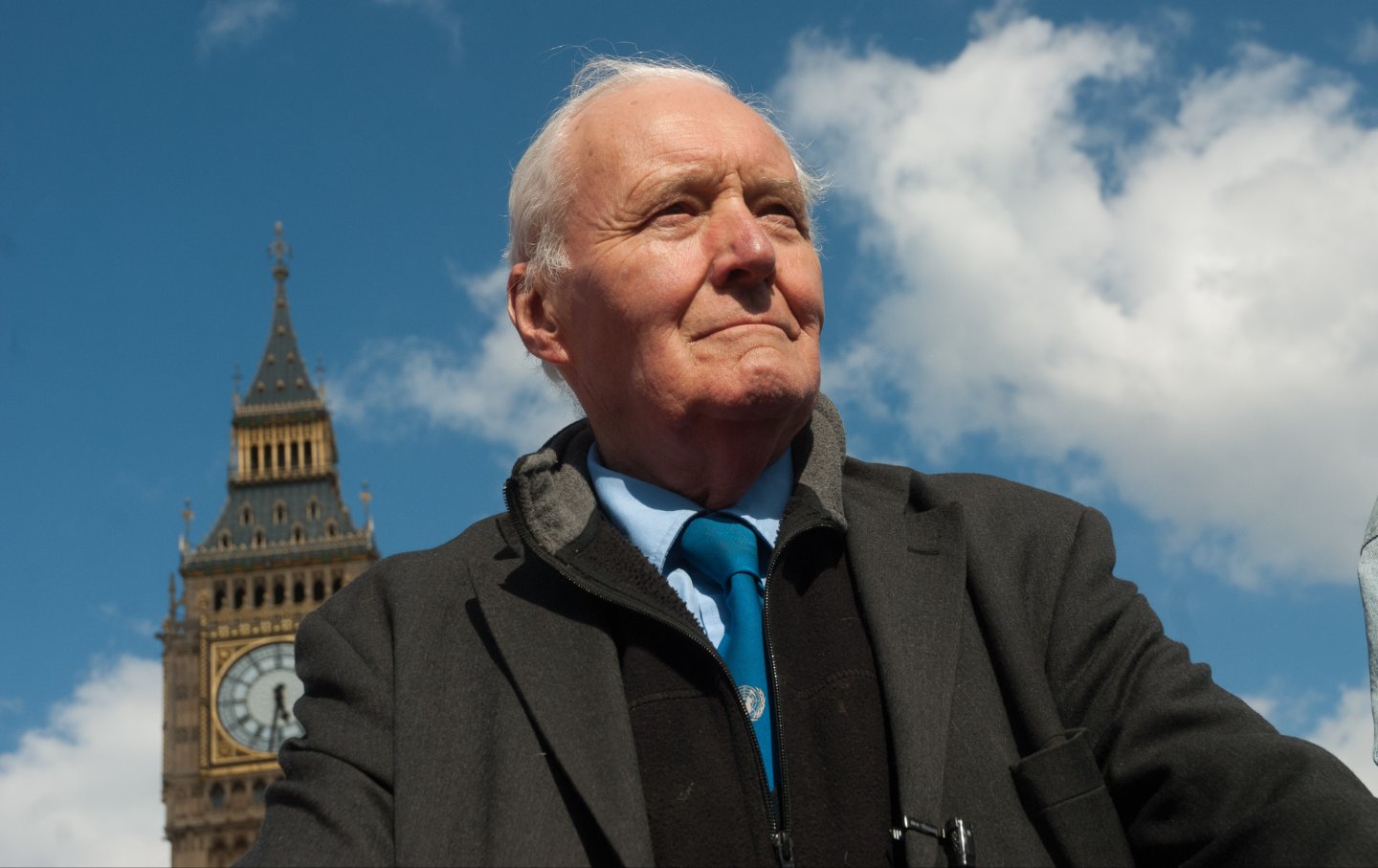Shawn Fain: “Trump Doesn’t Give a Damn About Working-Class People”
An exclusive interview with the UAW president.
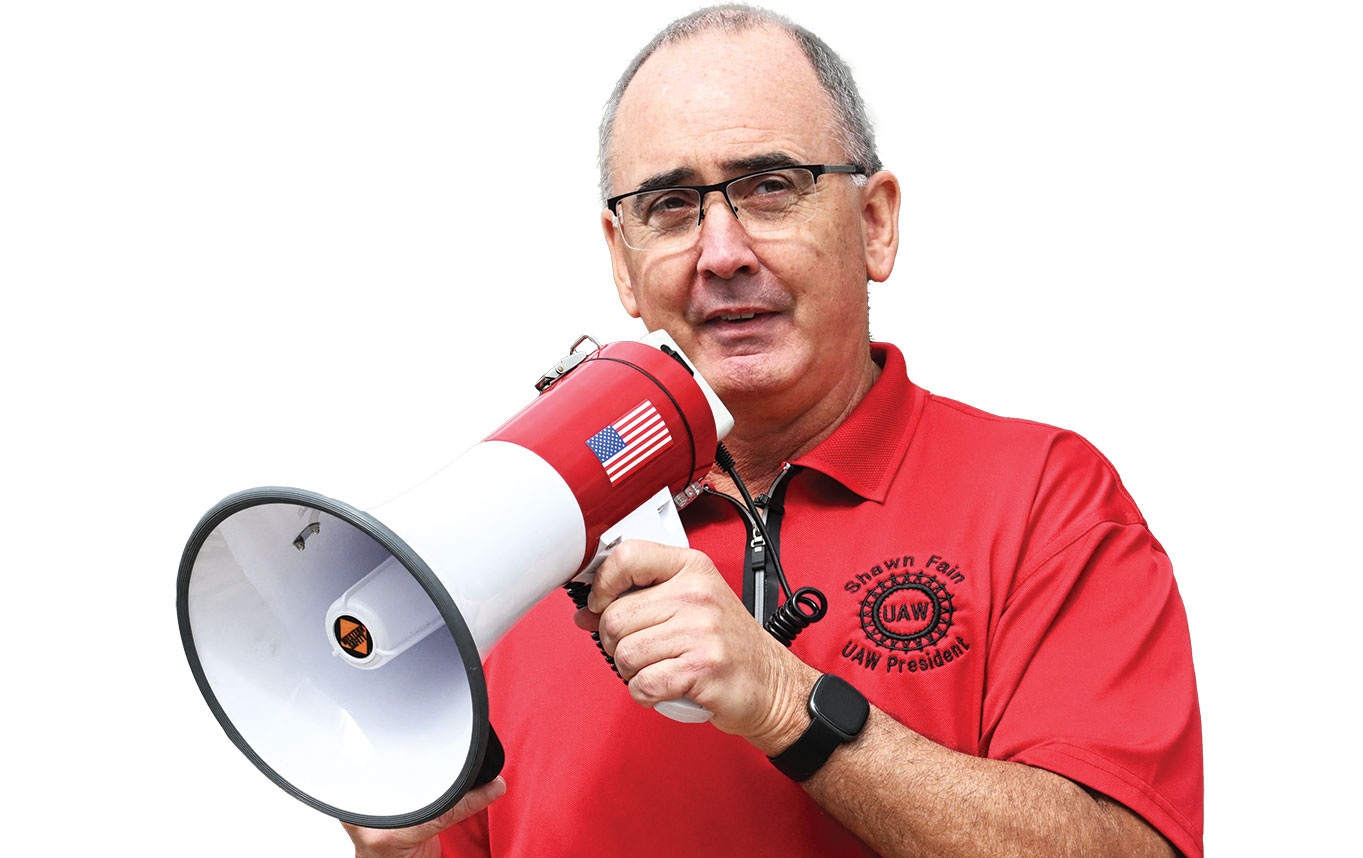
Shawn Fain
(Jim Watson / AFP via Getty Images)Shawn Fain is more than just a labor leader. Since his election a year ago as president of the United Auto Workers, following a rank-and-file revolt against corruption and complacency in one of America’s most storied labor unions, Fain has emerged as the embodiment of working-class anger over income inequality and corporate greed. Last fall, he steered the UAW through a historic strike against the Big Three domestic automakers. The walkout was powered by savvy media strategies and fiery rhetoric that had Fain’s enemies accusing him of inciting a class war. (He cheerfully embraces that image, even appearing once in an “Eat the Rich!” T-shirt.) Since that victory, the UAW has launched a drive to organize foreign-owned auto plants, along with Elon Musk’s Tesla; called for a cease-fire in Gaza; and waded into presidential politics with a fierce assault on Donald Trump’s claim to speak for workers. The Nation met with Fain at the UAW’s Solidarity House in Detroit for this, the first in a series of conversations that we’ll be publishing in the coming weeks with the union leader who says, “Billionaires, in my opinion, don’t have a right to exist.”
—John Nichols
JN: Is it fair to say that the UAW’s strike, along with other union fights last year, got labor off the defensive and remade how Americans think about unions?
SF: Definitely. It was an awakening. I think [frustration has] been brewing for years—and in people like myself, for decades—within our union over leadership that, I felt, was way too close to the companies. But I think the general public as a whole saw it [as a breakthrough moment]. Our strike was kind of a catalyst. And not just ours—the Teamsters didn’t strike [against UPS], but their contract campaign got a lot of interest. It helped our members prepare for a strike. Our members were out there on those practice pickets with the Teamsters and UPS. And the [Writers] Guild and SAG-AFTRA, with their strikes, had an impact. [The sense of a stronger labor movement] is a culmination of all those things.
But I think the Big Three strike just had so much visibility. We started our contract campaign just wanting to get the message to our members and get our members rallied around our issues, and to see how that manifested—and it turned into not just galvanizing our membership but really bringing the public into it. I tell people this all the time, that it was amazing to sit here in this office on the morning of the strike deadline and have [the news] on, and they’ve got a countdown clock for the UAW strike deadline. It’s like New Year’s Eve, and when have you ever seen that for labor?
Seventy-five percent of Americans supporting us in a strike—you’ve never really seen that type of support before. I believe it’s for one core reason: Whether you’re in a union or not, working-class people in this country, in this world globally, are all feeling the same pain. Profits went through the roof for corporations and companies everywhere, and workers have been pushed backwards. The wealth inequality in this world and in this country is so out of control over the last 40 years, to where the few at the top are getting all the profits and everybody else has been left to fend for themselves. When you talk wages, when you talk retirement security, when you talk adequate healthcare and just people having their lives back, their time back—those are issues that matter to not just union people, but to all working-class people. Those are the issues that resonate.
JN: There was a lot of media focus on the economic demands that the union made. But the UAW also proposed a 32-hour workweek, and like many of the European unions, you were saying that there’s got to be some sort of human scale in all this.
SF: That’s the part that always gets left out of everything in this capitalist nation: Humans are a nonfactor in these decisions. Corporations don’t think about humanity. They don’t think about how every decision they make impacts humanity. They think about one thing: the bottom line—shareholder value, dividends, and immediate profit. And that all happens at the expense of human beings. We have to get back to being a human-centered country. We can’t say we’re a nation of the people, by the people, for the people, when corporations and the extremely wealthy have bought our political system through decisions like Citizens United, where [the Supreme Court] called donating money “free speech.” We have to get back to a nation, and a world, that puts humanity first. That’s not going to happen [through] corporations and businesspeople; it’s going to have to happen [through] labor unions. Organized labor, that’s why we’re here—to make life better for people and to have a good standard of living.
When I was a kid, in the early ’70s, a good friend of mine, his dad worked at a grocery store—they had a big family, and a job at a grocery store could sustain a family. When Reagan took over, we saw that start to shift, to where both partners had to get a job. Purchasing power kept shrinking and everything else kept going up. Now we’re at a place where this whole system is upside down—not just in the union, but in this nation, in this world. We need to turn the whole thing [right side up] and get back to [a] reality where it’s people-centered. We’ve let politics hijack everything, and it’s just ridiculous. I am shocked to hear one particular party claim that they are the party of Christianity and everything else. I mean, everything they stand for is completely against humanity and what Scripture would teach us, which is love and loving your fellow human being. Nowhere does it say: “Accumulate all the wealth you can and screw everybody else.”
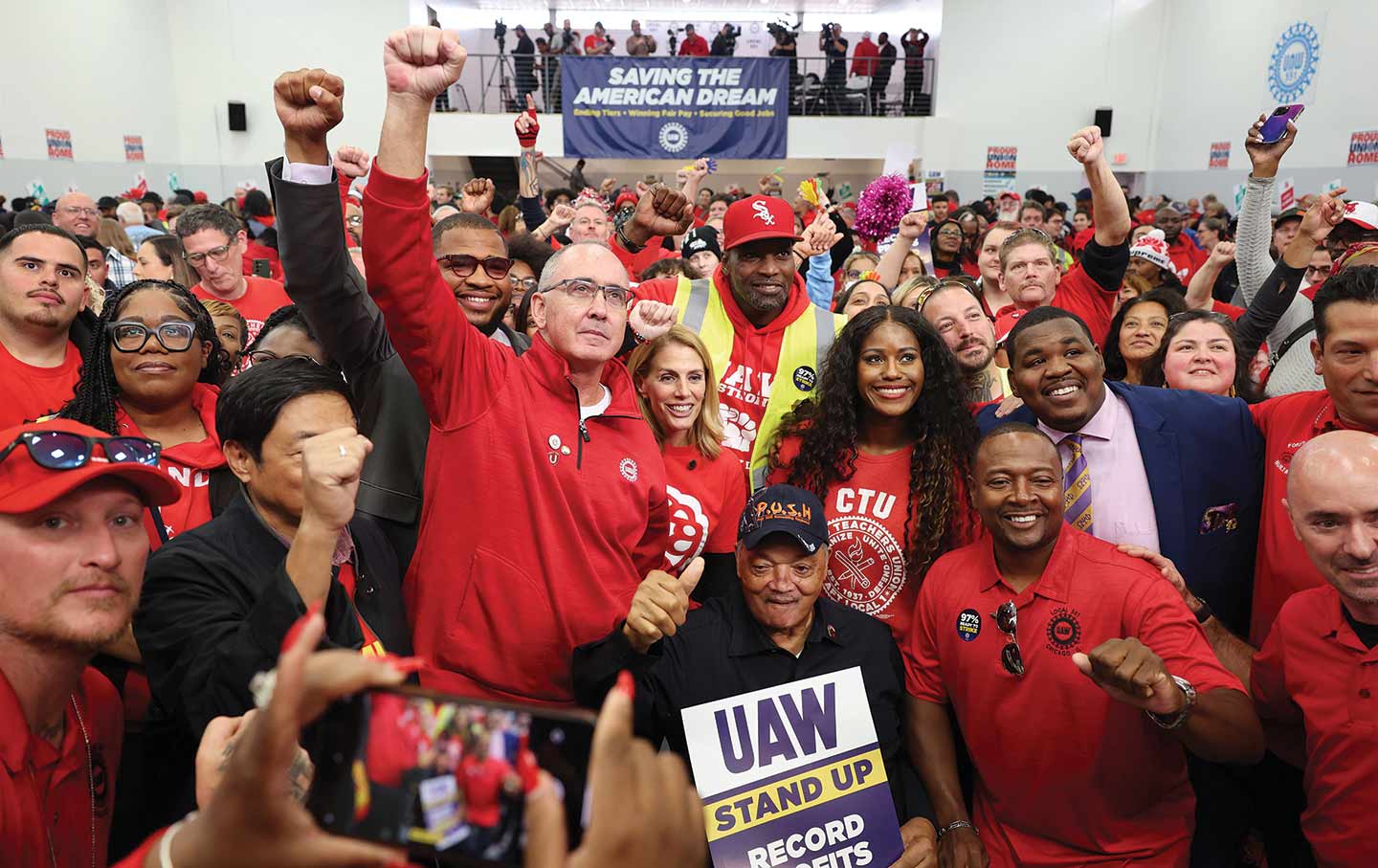
JN: Speaking of politics, it was notable that when President Biden joined the UAW on the picket line last fall, the union had not endorsed him at that point. While some unions had rushed to endorse Biden, the UAW held off. So when Biden showed up for workers, it was important for the union. But it was also important for him.
SF: When I took over as president, I was tired, like a lot of our members, of just watching us give a rubber stamp to candidates in the elections. There was still a lot of work to be done, and so we said our endorsements would be earned…. When we went to the picket line, we gave a call to action, and within, hell, I think it was four or five days, [Biden] was standing on the picket line. First time in our history that a sitting president’s joining a picket line.
JN: Biden joined union members on a picket line, while Trump flew in the same week to appear at a nonunion plant. But it wasn’t just that: Trump came to undermine UAW leadership in the middle of a strike. That’s a very stark juxtaposition. Now that the UAW has endorsed Biden, do you think that can have an impact on swinging working-class voters to Biden?
SF: I believe so. We have to look at facts; not party affiliation, not Shawn Fain’s opinion, facts—the two candidates in their own words, in their own actions. That’s why, when we made the endorsement, I made a PowerPoint and put it on a screen for members to see. When Donald Trump was president, GM was on strike for 40 days. What did Donald Trump have to say? Not a word. What did he do? Not a thing. When [Ohio’s] Lordstown assembly plant was [cutting jobs] when Trump was president, he told workers, “Don’t sell your houses.” What did he say and what did he do after that? Not a thing. What happened? The plant closed. Workers were displaced and moved all over the country. You look at 2015, when Donald Trump was a candidate for president: He came to the central United States and said we need to do a rotation of these good-paying jobs in the Midwest to somewhere where they pay less in this country—meaning the South—and we’ll have these workers begging for their jobs back at any rate. That is not a man who stands with labor. [Contrast that with] Joe Biden: Going back to the recession, he stood with the American worker. While he’s been president, he stood with us on the solid picket line—first time in history a president’s done that. He fought to save a community: [The Biden administration] went into action, they went to work, to help us save a community [Belvidere, Ill., where the UAW has worked to reopen a shuttered Stellantis plant]. They worked with us to bring the battery industry under our standards. There’s a huge contrast between these two candidates. One stands with working-class people, and one represents the billionaire class—and is a member of the billionaire class— and doesn’t give a damn about working-class people.
JN: It sounds like you’re ready to debate Donald Trump.
SF: In a heartbeat.
Hold the powerful to account by supporting The Nation
The chaos and cruelty of the Trump administration reaches new lows each week.
Trump’s catastrophic “Liberation Day” has wreaked havoc on the world economy and set up yet another constitutional crisis at home. Plainclothes officers continue to abduct university students off the streets. So-called “enemy aliens” are flown abroad to a mega prison against the orders of the courts. And Signalgate promises to be the first of many incompetence scandals that expose the brutal violence at the core of the American empire.
At a time when elite universities, powerful law firms, and influential media outlets are capitulating to Trump’s intimidation, The Nation is more determined than ever before to hold the powerful to account.
In just the last month, we’ve published reporting on how Trump outsources his mass deportation agenda to other countries, exposed the administration’s appeal to obscure laws to carry out its repressive agenda, and amplified the voices of brave student activists targeted by universities.
We also continue to tell the stories of those who fight back against Trump and Musk, whether on the streets in growing protest movements, in town halls across the country, or in critical state elections—like Wisconsin’s recent state Supreme Court race—that provide a model for resisting Trumpism and prove that Musk can’t buy our democracy.
This is the journalism that matters in 2025. But we can’t do this without you. As a reader-supported publication, we rely on the support of generous donors. Please, help make our essential independent journalism possible with a donation today.
In solidarity,
The Editors
The Nation

